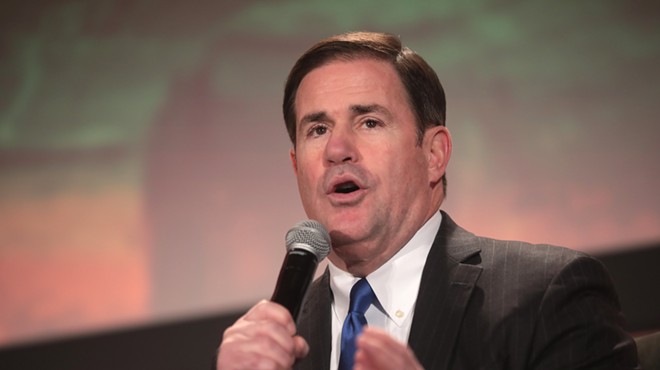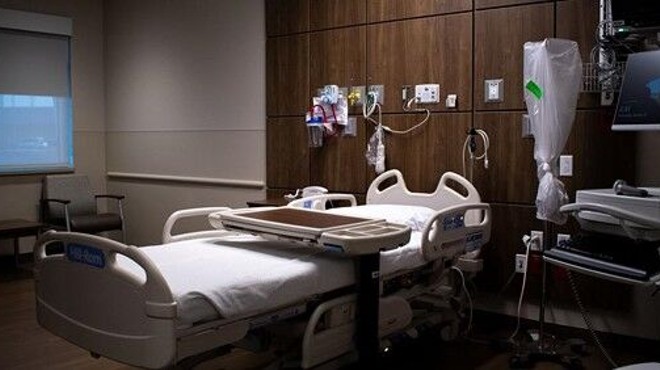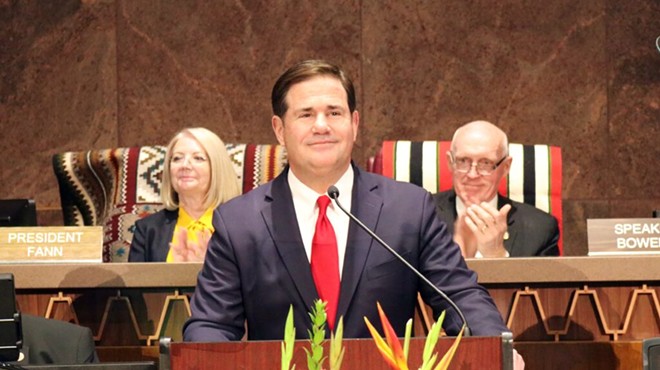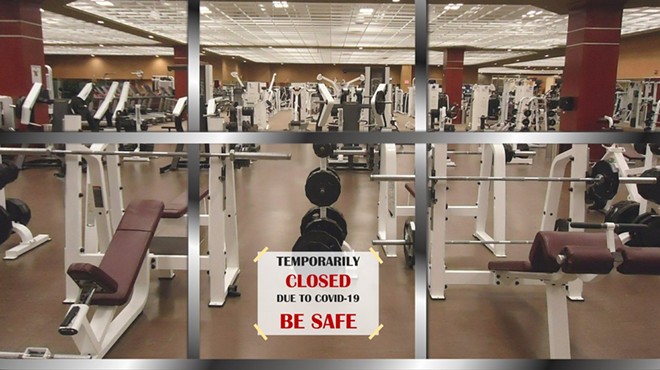Monday, May 18, 2020
Substitute Pharmacists Warn Their Co-Workers: We’ll Probably Bring the Virus to You
ProPublica is a nonprofit newsroom that investigates abuses of power. Click here to read their biggest stories as soon as they’re published.
He joined Walgreens around a decade ago, fresh out of pharmacy school and eager to learn. Like many new grads, he started as a floater — a substitute for employees who call out sick or take vacation — and he was floated as far as he was willing to go. Sometimes he would drive hours east of the Dallas area, where he lived, to pick up shifts in rural Texas, sleeping in hotels for days at a time.
The pharmacist, who requested anonymity because he was not authorized to talk to the media, eventually worked his way up to become a full-time manager at a store in Dallas. But recently he’s returned to floating, this time at CVS, preferring its flexible hours. In the past three months, he’s traveled between 10 stores.
As the pandemic rages on, though, he wonders if he’s made a terrible mistake. When he shows up at a store, he said, he’s not told whether any employees have shown symptoms or tested positive, so he doesn’t know if he’s at risk. On two occasions, the Dallas floater said, he only heard from colleagues after he started his shift that they had just been working alongside someone who was self-isolating with COVID-19 symptoms. Because his temporary co-workers had not shown symptoms, they were not advised to quarantine.
"There’s no heads-up," he said. "It’s terrifying to learn about it after you show up, if at all." Even more terrifying, he added, is the possibility that he and other floaters are catching the virus and unwittingly spreading it to other stores.
Floaters are common in hospitals, nursing homes and pharmacies, and they play a critical role in making sure that these facilities have enough staff to properly care for patients. But in a pandemic, workers who pitch in at multiple sites could be at higher risk of both contracting and spreading the coronavirus, forming an overlooked link in the chain of transmission. They may catch the virus at one location, and once they’re reassigned, carry it to their next stop.
"It’s absolutely a concern to move people around where there’s active transmission, some of whom might be susceptible," said Denis Nash, a professor of epidemiology at CUNY School of Public Health. "It puts the floater pharmacist at risk, and it potentially seeds transmission where it might not otherwise happen."
At pharmacies, some floaters are full-time employees. Others, including the Dallas floater, work part time for a specific chain; they don’t qualify for general sick leave, although they do get two weeks’ paid leave if they contract the coronavirus. Most are given schedules weeks in advance. But with pharmacies needing immediate replacements for people who have tested positive or fallen ill, floaters said that they are being given shorter notice than usual about where they’ll be working next — and little information about whether anyone there has been exposed or infected.
Fifteen employees at CVS and Walgreens, the country’s two largest retail pharmacy chains, told ProPublica that floaters are not given information about whether any employee has gotten sick with the coronavirus at a store when they show up to work there. One floater told ProPublica that he has worked in as many as 20 stores in the past month without being told about any infections before he showed up at a location. Several floaters said that managers at both companies refused to fill them in about potential exposure, citing privacy laws. Those privacy laws do not apply, experts told ProPublica. The Centers for Disease Control and Prevention guidelines advise employers to inform employees about possible exposure to the coronavirus in the workplace.
A floater in Ohio, who works at about a dozen Walgreens a month, said he warns his colleagues that he may endanger them. "I always tell people, ‘Definitely stay away from me, don’t get close to me, because as the floater, I’ll probably be the one who is going to bring the virus to you,’" he said.
The use of floaters "is just going to turn pharmacies into hot spots," said John Fram, a senior pharmacy tech at a Walgreens in New York City. "Techs and pharmacists who worked with positive employees or work within a hospital are still moving around working at lots of other stores in the city." Fram said that a tech who took a shift at his store had previously worked at a Walgreens in Chelsea where ProPublica reported an outbreak of the virus among at least three employees in April.
Walgreens said that, to help reduce the risk of exposure, it is taking steps to limit the number of stores where floaters are working and "to fill open shifts with the same individuals as much as possible." When notified of a confirmed or presumed case of COVID-19, it said, its responses include "identifying and contacting individuals who may be at risk in order to self-quarantine or self-monitor their health, as well as cleaning and disinfecting impacted areas of the store or the entire location."
While there were pharmacists at the Chelsea location who worked at other stores, "none were ever presumed positive or in contact with someone who was presumed positive," Walgreens said.
CVS said it has introduced policies to ensure the safety of employees, whether they work at a single location or are part of the "subset of pharmacists who ‘float’ between different store locations." Those policies include requiring employees to wear masks; installing protective shields at counters and checkout stations; hourly cleanings for hard surfaces; and a wellness and temperature check before an employee begins a shift.
All employees, including floaters, are notified if they have been exposed to a co-worker who tested positive, CVS said. Regarding whether employees are notified if they are assigned to a store that has had previous cases of COVID-19, CVS said, "Employees who were not exposed and work subsequent shifts are in a work environment that has been deep cleaned or has had hourly or more regular cleanings."
Both a CDC report and a New England Journal of Medicine study flagged staff members who work in multiple facilities as a factor in the hundreds of cases of COVID-19 associated with the Life Care Center of Kirkland, a nursing home in King County, Washington, and to the spread of the virus to other nursing homes in the area. "It’s a common practice within the nursing industry and within health care to work in multiple places," said Timothy Killian, a spokesperson for Life Care Centers of America, which manages more than 200 long-term care facilities nationwide, acknowledging that "it was possible" that such mobile workers "contributed to the spread of COVID-19."
An employee at a Walgreens in Houston who tested positive worked at other store locations while infectious, in close contact with fellow employees, according to an informal complaint submitted in March to the Occupational Safety and Health Administration. "The employer is aware of this information and has not communicated that to other employees, nor allowed them to self-quarantine for 14 days as per current CDC guidelines," a summary of the complaint stated.
Walgreens said that it used contact tracing to investigate the complaint, which involved a pharmacist who worked at two stores. It then informed OSHA that the complaint was inaccurate, it said. "All employees who were deemed in close contact with the team member were asked to self-quarantine at home and put on paid leave," Walgreens said. "None of the employees that worked with this team member tested positive for COVID-19." After receiving the company’s response, OSHA closed the complaint.
Recognizing the propensity to increase contagion, some long-term care facilities and nursing homes, including Life Care Centers, have discontinued the practice of having staff float from one facility to another. "When we got notified about the first case, we stopped that right away and put in place a policy that if a nurse had a job elsewhere we would make them choose one location," Killian said. In April, the Centers for Medicare and Medicaid Services advised long-term care facilities that "staff as much as possible should not work across units or floors."
He joined Walgreens around a decade ago, fresh out of pharmacy school and eager to learn. Like many new grads, he started as a floater — a substitute for employees who call out sick or take vacation — and he was floated as far as he was willing to go. Sometimes he would drive hours east of the Dallas area, where he lived, to pick up shifts in rural Texas, sleeping in hotels for days at a time.
The pharmacist, who requested anonymity because he was not authorized to talk to the media, eventually worked his way up to become a full-time manager at a store in Dallas. But recently he’s returned to floating, this time at CVS, preferring its flexible hours. In the past three months, he’s traveled between 10 stores.
As the pandemic rages on, though, he wonders if he’s made a terrible mistake. When he shows up at a store, he said, he’s not told whether any employees have shown symptoms or tested positive, so he doesn’t know if he’s at risk. On two occasions, the Dallas floater said, he only heard from colleagues after he started his shift that they had just been working alongside someone who was self-isolating with COVID-19 symptoms. Because his temporary co-workers had not shown symptoms, they were not advised to quarantine.
"There’s no heads-up," he said. "It’s terrifying to learn about it after you show up, if at all." Even more terrifying, he added, is the possibility that he and other floaters are catching the virus and unwittingly spreading it to other stores.
Floaters are common in hospitals, nursing homes and pharmacies, and they play a critical role in making sure that these facilities have enough staff to properly care for patients. But in a pandemic, workers who pitch in at multiple sites could be at higher risk of both contracting and spreading the coronavirus, forming an overlooked link in the chain of transmission. They may catch the virus at one location, and once they’re reassigned, carry it to their next stop.
"It’s absolutely a concern to move people around where there’s active transmission, some of whom might be susceptible," said Denis Nash, a professor of epidemiology at CUNY School of Public Health. "It puts the floater pharmacist at risk, and it potentially seeds transmission where it might not otherwise happen."
At pharmacies, some floaters are full-time employees. Others, including the Dallas floater, work part time for a specific chain; they don’t qualify for general sick leave, although they do get two weeks’ paid leave if they contract the coronavirus. Most are given schedules weeks in advance. But with pharmacies needing immediate replacements for people who have tested positive or fallen ill, floaters said that they are being given shorter notice than usual about where they’ll be working next — and little information about whether anyone there has been exposed or infected.
Fifteen employees at CVS and Walgreens, the country’s two largest retail pharmacy chains, told ProPublica that floaters are not given information about whether any employee has gotten sick with the coronavirus at a store when they show up to work there. One floater told ProPublica that he has worked in as many as 20 stores in the past month without being told about any infections before he showed up at a location. Several floaters said that managers at both companies refused to fill them in about potential exposure, citing privacy laws. Those privacy laws do not apply, experts told ProPublica. The Centers for Disease Control and Prevention guidelines advise employers to inform employees about possible exposure to the coronavirus in the workplace.
A floater in Ohio, who works at about a dozen Walgreens a month, said he warns his colleagues that he may endanger them. "I always tell people, ‘Definitely stay away from me, don’t get close to me, because as the floater, I’ll probably be the one who is going to bring the virus to you,’" he said.
The use of floaters "is just going to turn pharmacies into hot spots," said John Fram, a senior pharmacy tech at a Walgreens in New York City. "Techs and pharmacists who worked with positive employees or work within a hospital are still moving around working at lots of other stores in the city." Fram said that a tech who took a shift at his store had previously worked at a Walgreens in Chelsea where ProPublica reported an outbreak of the virus among at least three employees in April.
Walgreens said that, to help reduce the risk of exposure, it is taking steps to limit the number of stores where floaters are working and "to fill open shifts with the same individuals as much as possible." When notified of a confirmed or presumed case of COVID-19, it said, its responses include "identifying and contacting individuals who may be at risk in order to self-quarantine or self-monitor their health, as well as cleaning and disinfecting impacted areas of the store or the entire location."
While there were pharmacists at the Chelsea location who worked at other stores, "none were ever presumed positive or in contact with someone who was presumed positive," Walgreens said.
CVS said it has introduced policies to ensure the safety of employees, whether they work at a single location or are part of the "subset of pharmacists who ‘float’ between different store locations." Those policies include requiring employees to wear masks; installing protective shields at counters and checkout stations; hourly cleanings for hard surfaces; and a wellness and temperature check before an employee begins a shift.
All employees, including floaters, are notified if they have been exposed to a co-worker who tested positive, CVS said. Regarding whether employees are notified if they are assigned to a store that has had previous cases of COVID-19, CVS said, "Employees who were not exposed and work subsequent shifts are in a work environment that has been deep cleaned or has had hourly or more regular cleanings."
Both a CDC report and a New England Journal of Medicine study flagged staff members who work in multiple facilities as a factor in the hundreds of cases of COVID-19 associated with the Life Care Center of Kirkland, a nursing home in King County, Washington, and to the spread of the virus to other nursing homes in the area. "It’s a common practice within the nursing industry and within health care to work in multiple places," said Timothy Killian, a spokesperson for Life Care Centers of America, which manages more than 200 long-term care facilities nationwide, acknowledging that "it was possible" that such mobile workers "contributed to the spread of COVID-19."
An employee at a Walgreens in Houston who tested positive worked at other store locations while infectious, in close contact with fellow employees, according to an informal complaint submitted in March to the Occupational Safety and Health Administration. "The employer is aware of this information and has not communicated that to other employees, nor allowed them to self-quarantine for 14 days as per current CDC guidelines," a summary of the complaint stated.
Walgreens said that it used contact tracing to investigate the complaint, which involved a pharmacist who worked at two stores. It then informed OSHA that the complaint was inaccurate, it said. "All employees who were deemed in close contact with the team member were asked to self-quarantine at home and put on paid leave," Walgreens said. "None of the employees that worked with this team member tested positive for COVID-19." After receiving the company’s response, OSHA closed the complaint.
Recognizing the propensity to increase contagion, some long-term care facilities and nursing homes, including Life Care Centers, have discontinued the practice of having staff float from one facility to another. "When we got notified about the first case, we stopped that right away and put in place a policy that if a nurse had a job elsewhere we would make them choose one location," Killian said. In April, the Centers for Medicare and Medicaid Services advised long-term care facilities that "staff as much as possible should not work across units or floors."













